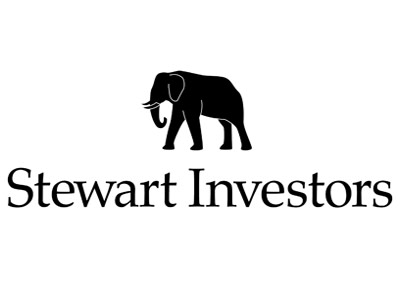Sashi Reddy and David Gait are experienced, patient and talented fund managers
We like their focus on stewardship and high-quality companies
Performance has been strong over the long term but has been weaker more recently
This fund is on the Wealth Shortlist of funds chosen by our analysts for their long term performance potential
How it fits in a portfolio
The Stewart Investors Indian Subcontinent All Cap fund aims to achieve long-term capital growth by investing in high-quality companies that mostly carry out business in India, Pakistan, Sri Lanka and Bangladesh.
India has the largest population in the world and presents compelling growth potential as its economy evolves. We believe this fund could help diversify the Asian and emerging markets portion of a globally-focused investment portfolio. A fund focused on a single emerging country is a high-risk option, so investors should expect volatility and it should only make up a small part of an investment portfolio.
Manager
Sashi Reddy has been lead fund manager since August 2012 and been involved with the fund since 2009. Reddy joined Stewart Investors in 2007, where he initially offered analysis and research support to portfolio managers, mainly concentrating on Indian companies.
David Gait is deputy manager and has also been involved with the fund since 2007. Gait is highly experienced and joined the company as a graduate in 1997. During his time at the company, he’s played a crucial role in developing their Asian investment strategies.
Reddy and Gait receive support from a close-knit team of other fund managers and analysts. Both managers sit on the Stewart Investors Board and manage other funds alongside this one. We believe they can comfortably handle these responsibilities given the overlap in approach and supportive team dynamic.
Process
The investment approach at Stewart Investors has been grounded in the same philosophy since 1988. This philosophy is built on stewardship, where fund managers treat investors' capital as their own and strive to grow wealth over the long term while minimising losses during periods of uncertainty.
‘Quality’ is a broad term in the investment world but for the managers at Stewart Investors it centres around three key pillars: management, franchise, and financials. They hunt for companies with robust financial strength and sustainable growth prospects.
They put great emphasis on the people and culture within businesses, only choosing to invest in those led by management teams they trust and deem to have integrity. Many of the companies they own still have a degree of founding family ownership.
The team focus on the prospects of individual companies rather than making decisions based on wider economic conditions. The investment process results in a concentrated fund of between 30-60 companies, although the fund is currently towards the lower end of that range. This means each company can have a significant impact on performance, although it’s a higher-risk approach. Compared to its benchmark, the fund invests more in industrials and healthcare businesses. In contrast, less is invested in financial and technology companies.
Although they can invest across the subcontinent, the managers mainly concentrate on India. Large and medium-sized companies are the primary focus, but they also invest in some higher-risk smaller companies. Investors should note the small number of companies in the fund and some investments in smaller businesses makes it less liquid than some other Indian funds – this means some of investments might not be as easy or quick to sell if lots of investors try to sell at the same time.
When making any investment, the fund managers take a long-term view and are prepared to be patient. That said, they’ve made some changes to the fund over the past year. New investments include Bajaj Auto, a maker of motorcycles and rickshaws, and PB Fintech, an online insurance platform. To make room for these new investments, shares in some companies were sold. These include electronics manufacturer Havells India and medical research company Syngene International.
Culture
We think the culture and philosophy that has evolved at the group over the years is attractive. The team doesn't put personal gain ahead of its investors and they look for companies that treat their customers in a similar way. It also places emphasis on recruiting and maintaining great people. Every manager and analyst advocates the team's overriding philosophy.
Stewart Investors forms part of First Sentier Investments, which was acquired by Mitsubishi UFJ, a Japanese bank, in 2019. Takeovers can sometimes lead to disruption and corporate change, though positively Stewart Investors remains an independent investment team.
ESG Integration
For the team at Stewart Investors, environmental, social and governance (ESG) considerations are much more than a label or box to be ticked. Taking these factors into account is a natural extension of the same investment process they’ve used for decades. The team’s philosophy is founded on stewardship – when they make an investment, they see themselves as part-owners of the business and want to make sure it’s run in a way that’ll benefit all shareholders.
ESG issues form a core part of this. For example, they don’t like companies that make reckless decisions in the pursuit of short-term gains, rather than focusing on longer term, more sustainable growth. A business shouldn’t exploit its workforce, take advantage of tax loopholes, or skirt around industry legislation. Importantly, it should cause little, if any, harm to the environment around it. Stewart Investors has made a firm-wide commitment not to invest in companies whose primary business is to make cigarettes (or other tobacco products), or controversial weapons.
The team also engages closely with company management. It helps them make sure management remain on track with sustainability initiatives and means they can encourage a change in behaviour if required. If they don’t think a business meets their standards, or is doing enough to address a problem, they won’t invest. The firm produces an annual Responsible Investment report, and a Stewardship report. These reports outline the firm’s voting record, provide engagement updates and case studies, and present other ESG-focused research.
While the team take sustainability seriously, investors should note that this fund has one of the highest ESG risk profiles of the funds under HL’s research coverage. Some of the companies within the fund could face increased regulatory scrutiny, reputational damage, and operational challenges, potentially impacting the fund's future performance. This is partly because the ESG risk profile of Indian funds in general can be higher than those investing in other markets, rather than it being specific to this fund.
Cost
The fund has an ongoing annual charge of 0.93%. Our platform charge of up to 0.45% per annum also applies, except in the HL Junior ISA, where no platform fee applies.
Performance
Since Reddy became lead fund manager in 2012, the fund’s delivered strong returns of 374.42%*. This is ahead of both the MSCI India benchmark, which grew 296.60%, and the IA India/Indian Subcontinent sector, where the average fund returned 316.99%. Remember, past performance is not a guide to future returns.
The managers’ focus on quality companies and a more conservative investment style means the fund has tended to hold up better when the Indian stock market falls but doesn't quite keep up when it rises.
This hasn’t been the case in the past year though, as the fund has lost 12.59% compared to a 5.65% drop in the MSCI India benchmark. Our analysis suggests that the individual companies chosen for the fund have been the main cause for this underperformance, particularly those in the Industrials sector where the fund currently has a large allocation. Tube Investments of India, who manufacture a wide range of metal products, and the courier company Blue Dart, were weak.
Some investments in the fund did perform well over the past year. Cholamandalam Financial, a provider of loans for property and vehicle purchases, was a positive contributor to performance. An investment in Narayana, a network of private hospitals, was also among the fund’s top performers.
All funds go through tough patches and despite the recent poor performance, we remain positive about the fund’s long-term prospects and continue to hold the managers in high regard. However, investors should remain mindful of the potential for volatility in a fund focused on a single emerging market.
Annual percentage growth
June 20 – June 21 | June 21 – June 22 | June 22 – June 23 | June 23 – June 24 | June 24 – June 25 | |
|---|---|---|---|---|---|
Stewart Investors Indian Subcontinent All Cap | 47.52% | 9.31% | 16.08% | 24.47% | -12.59% |
MSCI India | 40.41% | 8.70% | 9.59% | 35.67% | -5.65% |
IA India/Indian Subcontinent | 41.37% | 4.51% | 11.77% | 31.36% | -5.78% |


